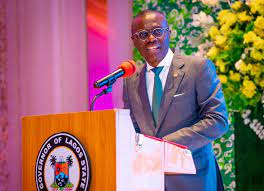JOSHUA EGBODO in this piece highlights the task before the new members-elect especially in the light of the advice recently offered by the Speaker of the House of Representatives, Yakubu Dogara.
Many members of the expected Ninth National Assembly would be coming in as greenhorns in the business of lawmaking, and the National Institute for Legislative Studies (NILS), at the expected expiration of a running assembly, always offer orientation for members-elect of the successor assembly.
Usually, the induction is designed to educate members, especially the freshers on procedures of presenting bills, motion, understanding the rules guiding proceedings of the house, the process through which a bill can become law, and many more.
It is the light of this that a programme for that purpose was put in place for them in Abuja. Not unmindful of the challenges ahead, Speaker Dogara in his address at the opening session of the event, admonished members-elect on the task before them, as well as what is expected of them.
Courage required
His call for courage may not be unconnected with experiences in the past, especially where legislations expected to right some perceived wrongs, were unattended to, or in some cases vetoed by the president, in manners pundits describe as more of politics than any genuine conviction on national interest for such rejections.
A case easily recalled was the Electoral Act amendment bill, which President Muhammadu Buhari declined assent to, for a record three times. Many Nigerians hoped the National Assembly would be courageous enough to override his veto on the bill, which was considered to have the potentials to enhance the gains of the reforms introduced before the 2015 general elections, but was not to be
Dogara, therefore, reminded the members-elect that courage is a requirement for them to effectively serve the country, the purpose for which they were elected. He said as representatives of the people, if they lacked courage, they would not be able to serve the electorate.
“Let me say something about the National Assembly that we may not learn in the course of the lectures that will be delivered. I have said that the hallowed chambers of the National Assembly require people of courage. Very soon, we members-elect of the National Assembly, whether distinguished senators and members of the House of Representatives, will be required to take an oath of office.
“But we must always remember that our democracy is organised in such a way that it is made to be driven by consensus. Where consensus fails, it is always the prerogative of the parliament or the National Assembly of Nigeria to go first, in the sense that when it comes to bills, for instance, even where the president has vetoed it, if the National Assembly can muster two-third of its members, they can override the veto.
“That is the aspect that I want all of us to pay attention to as we take oath as members of the National Assembly. We should know that it is about courage”, the speaker said.
What members were elected for
The speaker was also quick to remind them on the primary purpose of the parliament, with an emphasis on the principle of separation of power. “
“And we must always remember that as elected members of the National Assembly, let us do the work of the National Assembly. We are meant, as the first institution of democracy, to work with the executive and the judiciary. It was never designed that the National Assembly will work for the executive or work for the judiciary.
Power of appropriation
Indisputably, the 1999 constitution of the Federal Republic of Nigeria (as amended) gives the prerogative of allocating the nation’s financial resources to where they should be applied, expressly stating that monies from the consolidated funds of the federation can only be spent in a manner prescribed by the National Assembly. However, often times, disputes spring up between the executive arm and the parliament over the yearly appropriation exercise.
While the parliament usually hold on to its power of the purse, with the argument that it is not a rubber stamp in terms of proposed budgets from the executive, the later often accuse the former of passing “unimplementable” appropriation bills, especially when figures initially proposed are tampered with by way of increase, or reapplied to alternative sub-head.
Reaffirming the known position, Dogara told his colleagues that “with regards to appropriation, no monies will be appropriated or spent in the absence of express legislative authorisation. That means the budget is the work of the National Parliament. So this work, of course, requires courage”.
Vigilance
The speaker further tasked the members-elect on the need for internal vigilance, describing it as “the price for liberty”.
According to him, it is absolutely necessary to preserve the liberty of the citizens, saying “If liberty must be preserved in Nigeria, it is because there is an institution that is internally vigilant. That institution has always been the institution of the National Assembly”.
He also called on the members-elect to ensure that they work for the people that elected them, and not for any other interest.
The immediate tasks
Beyond the admonition presented by speaker, who apparently would be returning to the lower legislative house of the National Assembly, this time as a floor member, there are more in the hands of the members-elect of the coming House of Representatives.
For instance, it is not clear yet, the direction to which the ongoing speakership tussle may swing. On the side of the ruling All Progressives Congress (APC), which no doubts has a comfortable majority of members at the moment, it is not clear if the suggestion credited to its national chairman, Comrade Adams Oshiomole, that incumbent Majority Leader, Hon Femi Gbajabiamila be given the speakership, would enjoy wider acceptance of the party members.
The main opposition party, the Peoples Democratic Party (PDP), has yet not made its position on the development known, though it is said to have scheduled a meeting over the matter, its members in the House have voiced their opposition to the choice of Gbajabiamila, so settling down to the choice of a widely acceptable presiding officer for the coming house remained an immediate task before the members-elect.
Another hurdle, as has been the practice of the house in recent times may be the crafting and adoption of a legislative agenda.
Like a legislative roadmap for the house, its creation can only be after a successful inauguration, as well as election of the speaker, expected to take place in just about two months from now. A specific date would be made public on that by President Buhari, after his oath of office, through a proclamation dissolving the current assembly.



